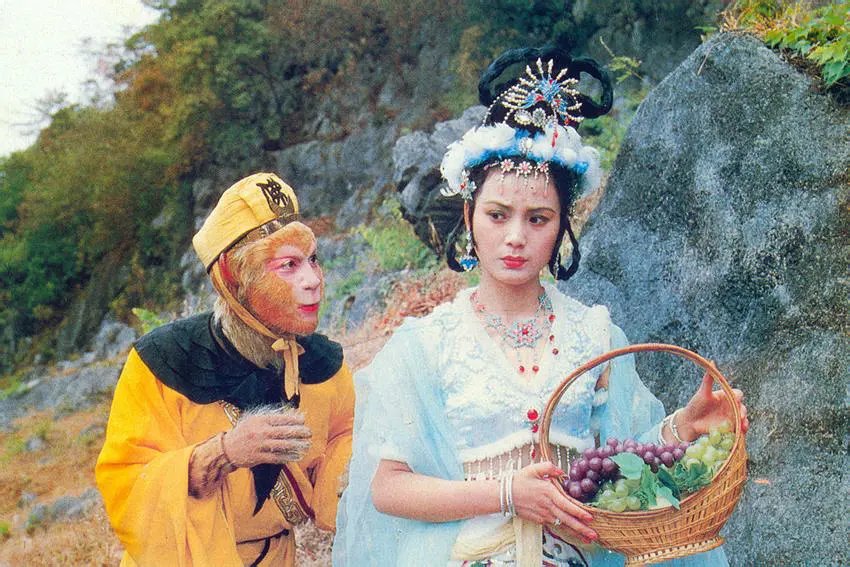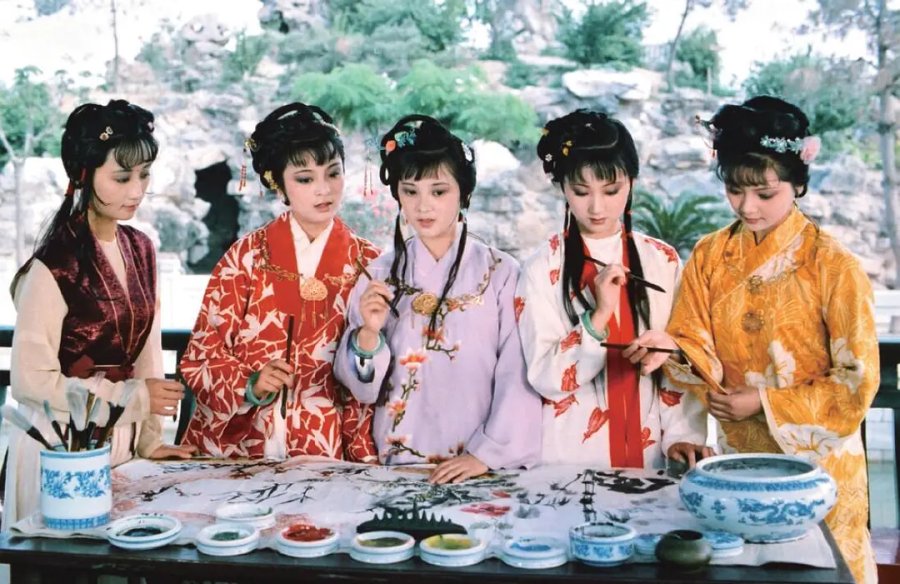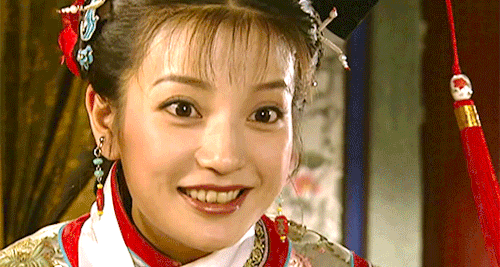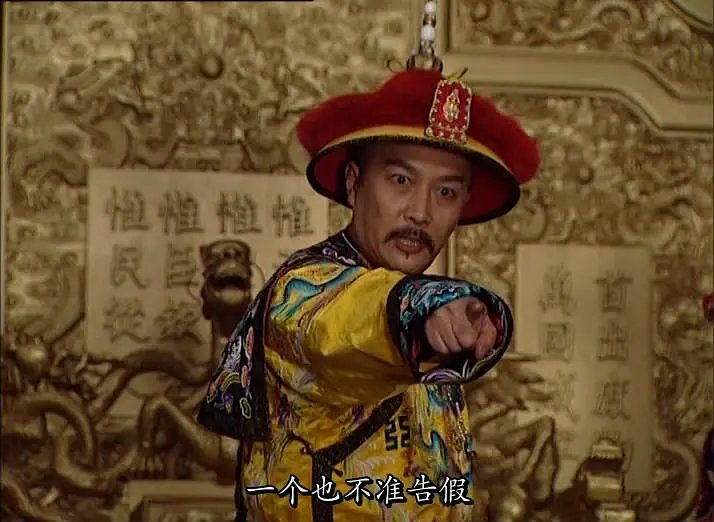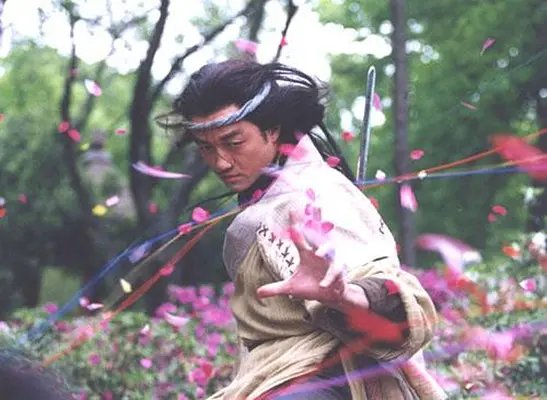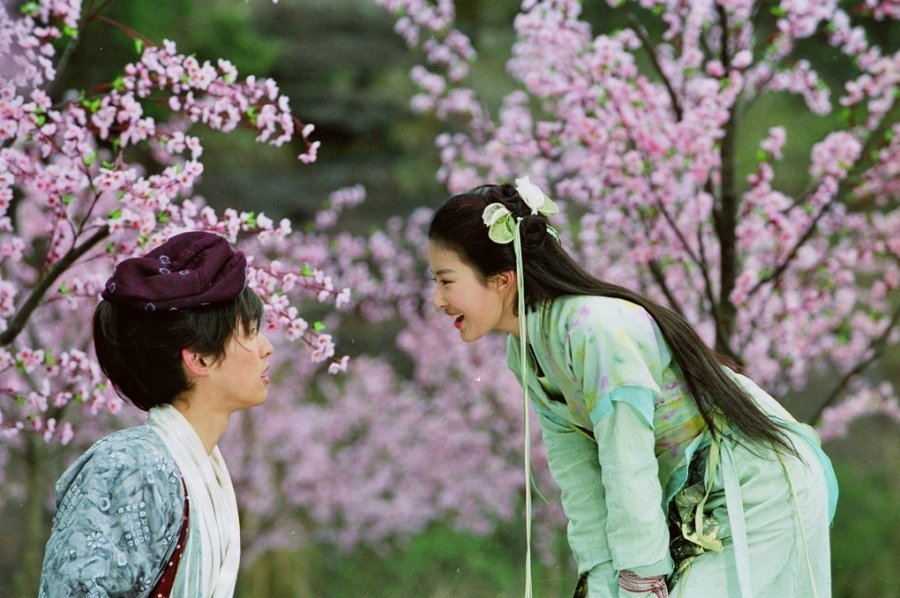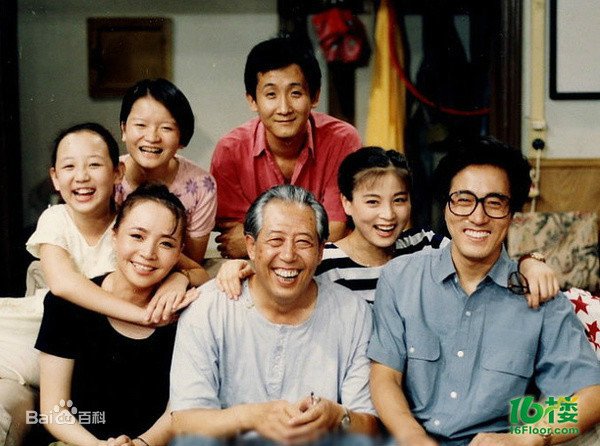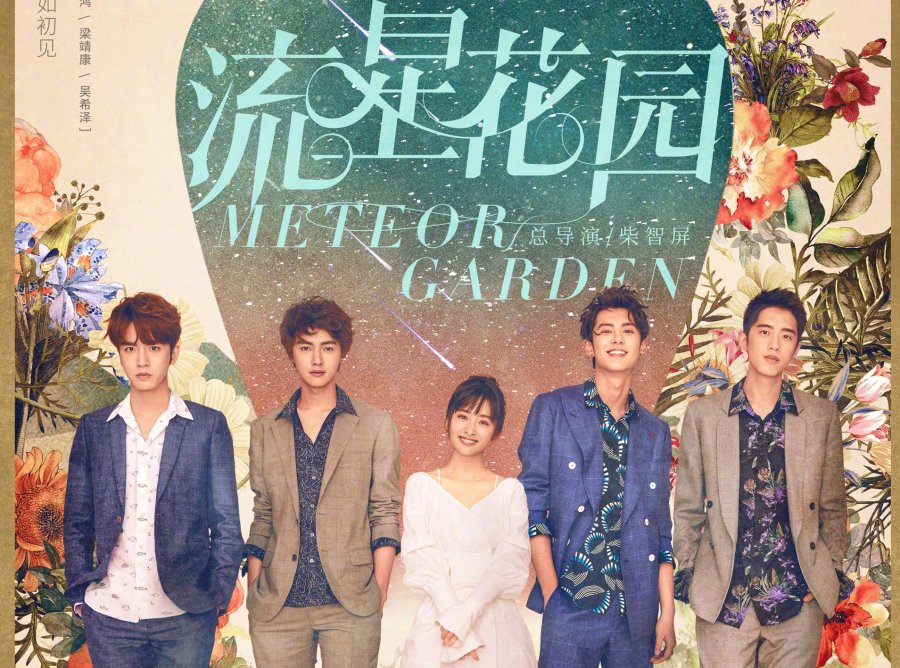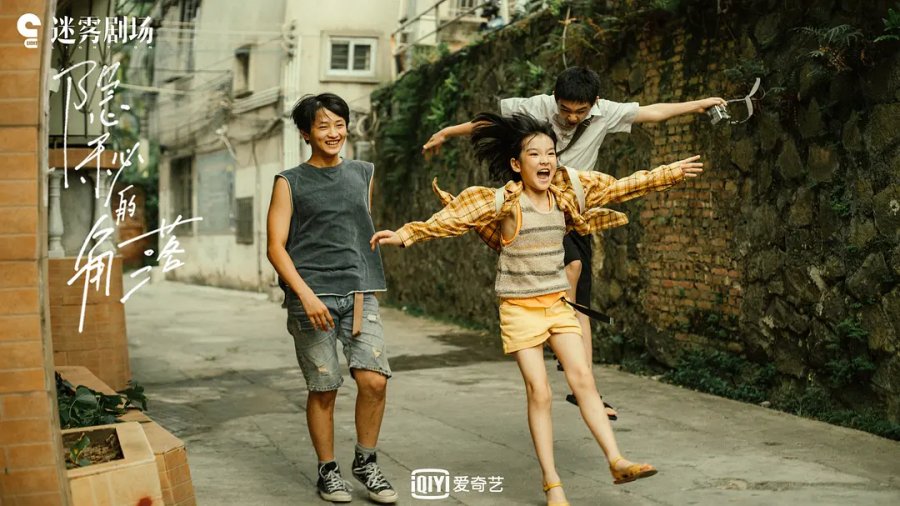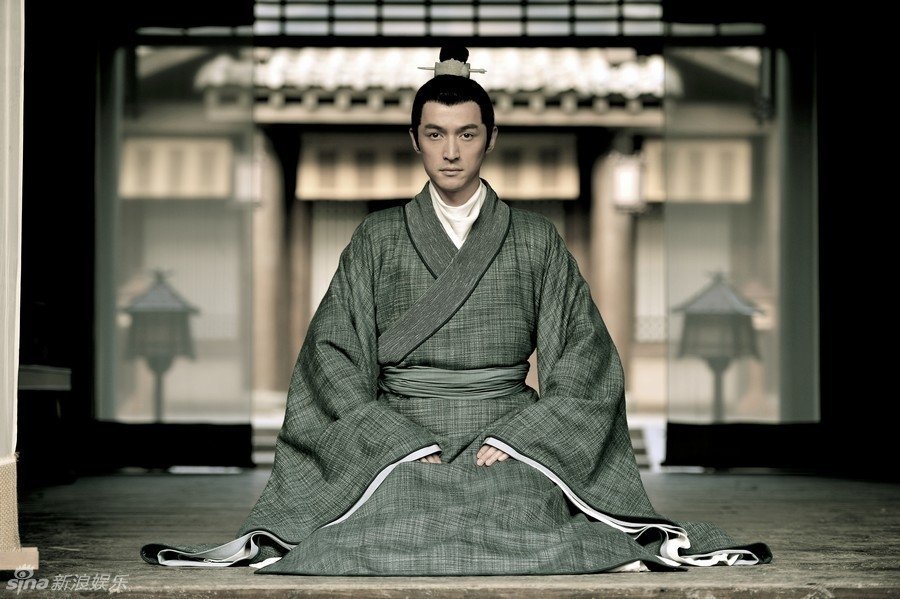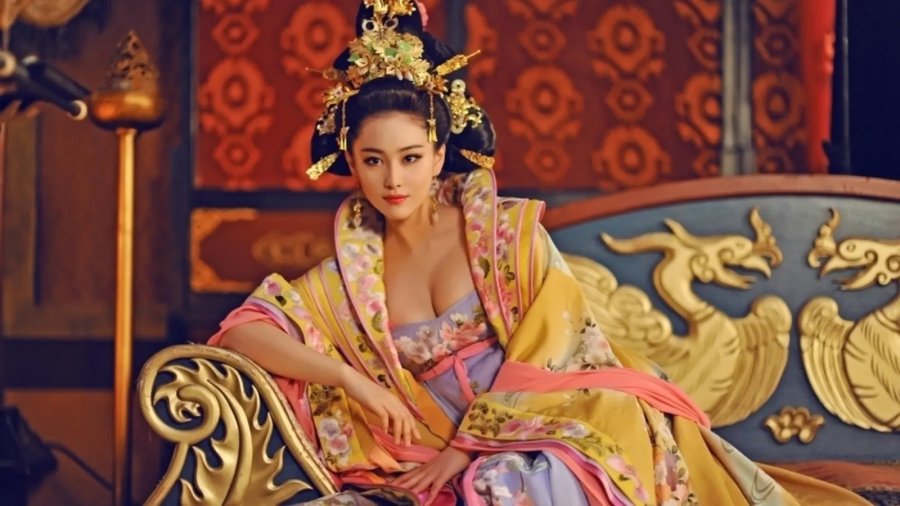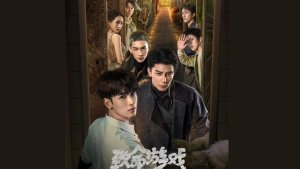 The Spirealm: Behind the Mysterious Doors
The Spirealm: Behind the Mysterious Doors
Introduction |
China has been making great dramas for many decades, but I rarely hear anyone talk about older Chinese dramas, so today I hope to change that! I will take you on a journey through the history of C-dramas, and introduce you to some of the most popular and influential dramas of each decade.
The majority of the information in this article comes from books written by Ruoyun Bai, Shenshen Cai, Xueping Zhong, and Ying Zhu, who teach courses in either media studies or Chinese studies. The rest of the information comes from online articles. For further reading, the references are provided at the end of the article.
The Birth of Chinese TV |
Mainland China's first television station, Beijing TV (later renamed CCTV) began broadcasting in 1958 (Bai 27 - 28). The first Chinese television drama was A Mouthful of Vegetable Pancake (1958), a single-episode drama about a girl who teaches her sister not to waste food, as part of the Chinese Communist Party's effort to promote frugality. From 1958 to 1966, Beijing TV and other stations broadcast more than 200 dramas, and as Bai explains, many were about promoting socialist values.
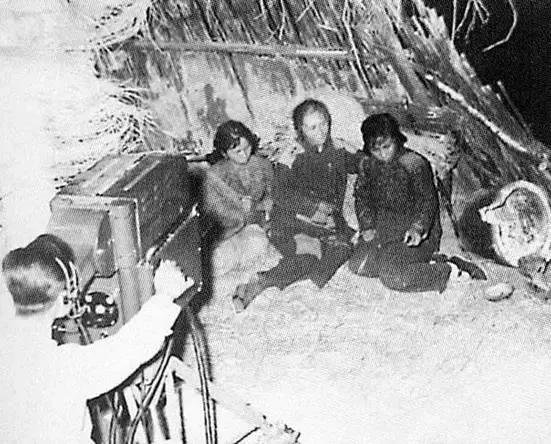
During the Cultural Revolution (1966 - 1976), television dramas were denounced, but after the revolution ended, Chinese television started to recover. The first serial drama was Eighteen Years in the Enemy Camp (1981), a 9-episode action-thriller, but it was not popular with audiences (Zhu et al. 4 - 5).
Classic Novel Adaptations |
Shandong TV broadcast Outlaws of the Marsh (1983), an acclaimed adaptation of the classic novel The Water Margin. Following its success, CCTV produced several popular adaptations of classic novels such as Journey to the West (1986), A Dream of Red Mansions (1987), Romance of the Three Kingdoms (1994), and The Water Margin (1998).
Journey to the West tells the story of a monk who goes on a journey to obtain Buddhist sutras. He is joined by Sun Wukong (the Monkey King), Zhu Bajie (the pig), and Sha Wujing (the river demon). Journey to the West was very popular with audiences of all ages, and has been rebroadcast thousands of times (Liping).
A Dream of Red Mansions (1987) tells the story of Jia Baoyu, the son of a noble family who spends time with his cousins and maids, against the backdrop of his family's declining fortunes (Jones). It has been praised for its costumes and props. The creators of the drama took the adaptation very seriously, and met with scholars to discuss the novel (Xueping 48 - 49).
A Dream of Red Mansion
Emperor Dramas |
In the 1990s, emperor dramas (a sub-genre of historical dramas) became popular. An "emperor drama" depicts a Chinese emperor from one of the dynasties. There were two styles of emperor dramas. Some were serious, while others were more playful and comedic (Xueping 47 - 49). The first playful emperor drama was Tales of Qianlong (1991), which depicts Emperor Qianlong's encounters with courtesans during undercover trips to South China (Zhu et al. 7).
The most popular playful emperor drama of the 1990s was Princess Pearl (1998). It tells the story of Xiao Yanzi, played by Zhao Wei, who is mistaken for Emperor Qianlong's long-lost daughter. Her funny conversations with the emperor, and her lively, cute, and articulate personality, made her a popular character among viewers (Xueping 54). Despite the historical setting, the characters have modern values (Zhu et al. 175).
Popular serious emperor dramas include Yongzheng Dynasty (1999), Palace of Desire (2000), Kang Xi Dynasty (2001), and Ming Dynasty in 1566 (2007). Some of these dramas were revisionist. For example, the real Yongzheng Emperor was remembered as a cruel man, but the drama Yongzheng Dynasty portrays him as a leader of great integrity (Zhu et al. 21 - 22). As Zhu explains, these dramas were popular because the historical setting made it possible to explore contemporary social and political issues, which may have been censored if the drama had a contemporary setting.
In the early 2010s, Scarlet Heart (2011) and Legend of Concubine Zhen Huan (2012) were very popular. Scarlet Heart tells about a modern woman who goes back in time and meets princes who are competing for succession to the throne. In 2016 it was remade into Korean drama Moon Lovers: Scarlet Heart Ryeo. Legend of Concubine Zhen Huan focuses on power struggles among concubines, who scheme against each other to survive, but it can also be read as a coded political tale (Cai 24).
Wuxia Dramas |
Wuxia literally means "martial heroes." Wuxia stories are about martial artists, usually set in ancient times, who fight to uphold a code of ethics. Wuxia evolved from xiayi fiction, which originated about 2000 years ago (Leung). As Leung explains, "old school" wuxia (1911 - 1949) is fantastical, similar to some earlier xiayi stories, but in the 1930s Hong Kong started to make "real kung fu" films. "New school" wuxia is a compromise between the two. There are no magical beings, but characters have superhuman fighting abilities. Most wuxia films and dramas are heavily influenced by new school wuxia writers Liang Yu Sheng, Jin Yong, and Gu Long. Jin Yong is especially popular, and his many wuxia novels are regularly readapted for TV.
During the 70s, 80s, and 90s, Hong Kong television stations ATV and TVB produced many wuxia dramas. The Legend of the Condor Heroes (1983) is considered by many to be a classic. During the 1990s, China imported many wuxia dramas from Hong Kong (Zhu et al. 177). Demi-Gods and Semi-Devils (1997) was so popular that nearly every broadcaster showed it during primetime (Bai 90).
Ancient dramas are expensive to produce, and due to lack of funding in Hong Kong, many directors and production crew left Hong Kong to work in mainland China (Su). In the early 2000s, mainland China started to produce popular wuxia dramas such as Laughing in the Wind (2001) and Demi-Gods and Semi-Devils (2003).
Laughing in the Wind
Xianxia Dramas |
Xianxia literally means "immortal heroes." Xianxia stories feature martial arts, but they have more fantasy elements than wuxia stories. Xianxia stories feature magical beings such as gods and demons, and characters often cultivate to gain immortality or strength.
Early dramas with xianxia elements include the aforementioned Journey to the West, based on a classic novel, the Taiwanese drama New Legend of Madame White Snake (1992), based on a folktale, and the Singaporean drama Legend of the Eight Immortals (1998), based on a classic novel, but their style is different from modern xianxia dramas (AvenueX). Chinese Paladin (2005) and its sequels, based on RPG games, are closer to the modern style. Following the success of The Journey of Flower (2015), most xianxia dramas have been based on web novels. Since then, many popular xianxia dramas have been made, such as Eternal Love (2017).
Chinese Paladin
Sitcoms |
The first Chinese sitcom was I Love My Family (1993), inspired by American sitcoms The Cosby Show and Growing Pains (Zhu et al. 119 - 120). It is about a family of six living in Beijing, and was filmed in front of a studio audience and has a laugh track. It was criticized when it first aired, but later gained a huge following. My Own Swordsman (2006) is another popular sitcom. It is set in ancient times, but it also incorporates modern popular culture (Zhu et al. 126). Instead of using a laugh track, it uses traditional Chinese music.
I Love My Family
The Influence of Trendy Dramas |
In the 1990s, China imported many trendy dramas from Japan, such as Tokyo Love Story (1991) and Long Vacation (1996). "Trendy dramas" depict romance and friendship between good-looking young professionals in a modern and urban setting (Zhu et al. 177 - 178). Inspired by Japanese trendy dramas, Taiwan produced its own trendy dramas, which they called "idol dramas." Meteor Garden (2001), a Taiwanese drama based on a popular Japanese manga Hana Yori Dango, is about a poor girl who goes to a university for rich people. It was a big success throughout East Asia, and the manga has since been readapted several times. As Zhu explains, it was banned in mainland China for "misleading the young generation." By the early 2000s, China was also importing many Korean dramas. Inspired by these imported dramas, China started to produce its own trendy dramas, including Meteor Garden (2018), a remake of the aforementioned Taiwanese drama!
Meteor Garden (2018)
Crime Dramas |
Crime dramas and corruption dramas were popular between 2000 and 2004, but in 2004, crime dramas were banned during prime time (Bai 86 - 87). According to Bai, this was done to maintain social stability, increase the party's moral legitimacy, and eliminate the "excesses" of entertainment television.
As a result, very few crime dramas were made, but the genre eventually made a comeback, with dramas such as The Big Case on the Mekong River (2014) and In the Name of People (2017) (Yifan). These dramas were shown during prime time because the producers worked together with the authorities, so the authorities had some control over the content. Several popular crime dramas have been made since then, such as Day and Night (2017), The Bad Kids (2020), and The Long Night (2020).
The Bad Kids
The Rise of Streaming |
Viki, a streaming service that allows users to create subtitles in many languages, announced in 2015 that it would start to show Chinese dramas (Frater). The historical drama Nirvana in Fire (2015), was a big hit, jumping to the top of MyDramaList's "Top Ranked Dramas," and it has remained near the top ever since. Soon after, other streaming services such as DramaFever and Netflix started to show Chinese dramas with subtitles. The increased availability helped Chinese dramas to gain more popularity in the west. Recently, many popular dramas have been based on web novels or other works with an established fanbase, to make them more marketable. Additionally, many genres are gaining popularity, such as romance, youth dramas, xianxia, and crime dramas.
Nirvana in Fire
Censorship |
The Chinese government is notorious for its excessive censorship. Many dramas are either banned or ordered to remove content, which limits the types of dramas that can be made. Censorship is controlled by the government agency NRTA, formerly SARFT (1998-2013) and SAPPRFT (2013-2018).
Towards the Republic (2003), a historical drama about the reforms that led to the collapse of the Qing Dynasty, was banned because its depiction of major historical figures contradicted official history (Bai 63).
In 2004, crime dramas were banned during primetime (see Crime Drama section above).
In 2008, the censors published a long list of banned content in films, including (among others) distorting history, obscene and vulgar content, homosexuality, ghosts, drinking, and smoking. However, the list does not cover everything, and the rules keep changing (Cain).
In 2010, the censors published a list of banned content in TV dramas, including (among others) inciting ethnic hatred, violating state religious policies, and promoting obscenity, gambling, violence, or drug addiction (Taihua).
In 2011, China banned time travel in film and television because it "disrespects history" (Landredth).
The historical drama The Empress of China (2014) was suspended for a few days because the dresses revealed too much cleavage. The drama was edited to remove the cleavage, causing widespread outrage (Griffiths).
The Empress of China
- Addicted Heroin (2016) was banned for depicting a homosexual relationship, which the Chinese government considers an "abnormal sexual relationship." Millions of viewers were outraged (Lu and Hunt). Despite the ban, demand for BL dramas remains high. The Untamed (2019), based on a BL novel, avoided censorship by using symbolism to convey the romance between the two male characters (Hudson).
In 2016, the censors published a more detailed list of banned content, including (among others) content that damages the image of the country, insults ethnic customs or religious beliefs, promotes superstition, shows extreme vengeance, and abnormal sexual relations (Horwitz and Huang).
Beijing Daily published an article criticizing the historical drama Story of Yanxi Palace (2018) for failing to promote socialist values. A few days later, TV broadcasts were canceled, but it remained on streaming service iQiyi (Baptista).
Conclusion and Recommendations |
Despite the censorship, China continues to produce great dramas in a variety of genres, both historical and modern, and Chinese dramas continue to become more popular worldwide. I look forward to seeing what dramas the next decade will bring.
A few of my favorites are Journey to the West, Princess Pearl, Judge of Song Dynasty (2005), Ming Dynasty in 1566, and Nirvana in Fire.
What are your favorite Chinese dramas of each decade?
Let me know in the comments.
ReferencesAvenueX. "What's Wrong with Xian Xia Dramas Today - Thoughts on A Genre." Youtube, uploaded by AvenueX, 2 Nov. 2021. Bai, Ruoyun. Staging Corruption: Chinese Television and Politics. UBC Press, 2014. Baptista, Eduardo. "Will China’s hit period drama ‘Yanxi Palace’ face censorship?" CNN, 2 Feb. 2019. Cai, Shenshen. Television Drama in Contemporary China: Political, Social and Cultural Phenomena. Taylor & Francis, 2016. Cain, Robert. "How to be Censored in China: A Brief Filmmaking Guide." IndieWire, 30 Nov. 2011. Frater, Patrick. "Viki Launches Chinese Service For Global Viewers." Variety, 18 Dec. 2015. Griffiths, James. "Banned on Chinese TV: ‘Western lifestyles,’ cleavage and time travel." CNN, 31 Aug. 2016. Horwitz, Josh, and Zheping Huang. "China’s new television rules ban homosexuality, drinking, and vengeance." Quartz, 3 Mar. 2016. Hudson, Nikki. "All the symbolism behind the WangXian ‘ship in ‘The Untamed’." Film Daily, 20 Jan. 2020. Jones, Jennifer. "Enthralled by a Chinese Classic." Beijing Review, 13 Sept. 2018. Landreth, Jonathan. "China Bans Time Travel Films and Shows, Citing Disrespect of History." The Hollywood Reporter, 13 Apr. 2011. Leung, CJ. "2000 Years Evolution of the Wuxia Genre." Youtube, uploaded by Cool History Bros, 12 Dec. 2021. Liping, Guo. "Literary script of legendary Chinese TV drama 'Journey to the West' to be released." Ecns, 4 July 2019. Lu, Shen, and Katie Hunt. "China bans same-sex romance from TV screens." CNN, 3 Mar. 2016. Su. "TVB’s Decline in Ancient Dramas." JayneStars, 4 Aug. 2018. Taihua, Wang. "Order of the State Administration of Radio, Film and Television." SARFT, 20 May 2010. Xueping, Zhong. Mainstream Culture Refocused: Television Drama, Society, and the Production of Meaning in Reform-Era China. University of Hawaii Press, 2010. Yifan, Wang. "Good Cops, ‘Bad Kids’: A Short History of the Chinese Crime Drama." Sixth Tone, 24 July 2020. Zhu, Ying, et al. TV Drama in China. Hong Kong University Press, 2008. |
Thank you to the editors who edited the article. All images are linked to their sources. Feature image is a self-made collage of (from top left clockwise): 1, 2, 3, 4, 5, 6, 7, 8, 9, 10, all images are converted into sepia. Research and first draft by mjf314. Visual design and preliminary editing by Cho Na. | Edited by: devitto (1st editor) |

